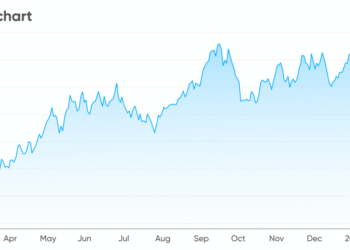
Over the last decade, online gambling has grown from a fringe activity into a mainstream form of digital entertainment, with millions of users worldwide placing bets, spinning slots, and wagering on sports—often from the palm of their hands. As of 2025, the global online gambling market is worth over $100 billion, and it shows no signs of slowing down.
But beyond entertainment, online gambling is a major economic force—driving job creation, generating tax revenue, and fueling tech innovation. In this article, we explore the industry’s explosive growth, its impact on the global economy, and the key trends shaping its future.
Online Gambling by the Numbers
The online gambling industry encompasses a wide range of activities:
-
Casino Games (slots, blackjack, roulette, baccarat)
-
Sports Betting
-
Poker Rooms
-
Bingo and Lotteries
-
Live Dealer Games
According to industry reports, online gambling is growing at a compound annual growth rate (CAGR) of 9-12%, with projections reaching $150 billion by 2030.
Key Markets:
-
Europe remains the largest market, led by the UK, Germany, and Italy.
-
North America, especially the USA, is growing rapidly due to state-level legalization.
-
Asia-Pacific is a rising powerhouse, with countries like India, the Philippines, and Australia leading the way.
Economic Impact of Online Gambling
1. Tax Revenue and Government Income
Many governments have legalized and regulated online gambling to tap into tax revenues. In the UK, for example, online gambling contributes billions of pounds annually in taxes, funding public services and infrastructure.
In the USA, newly regulated states like New Jersey and Pennsylvania report hundreds of millions in annual revenue from online gambling taxes, which helps fund schools, roads, and community programs.
2. Job Creation
The growth of online gambling supports thousands of jobs in tech, marketing, customer service, and game development. Software developers, graphic designers, cybersecurity experts, and AI specialists are in high demand to support this fast-paced digital industry.
3. Technology Investment
Online gambling is a technology-driven industry. Companies invest heavily in:
-
Secure payment systems
-
Mobile apps and responsive websites
-
Artificial Intelligence (AI)
-
Virtual Reality (VR) and Augmented Reality (AR)
This investment drives innovation that spills over into other sectors, such as fintech, e-commerce, and mobile gaming.
Social and Legal Implications
As the industry grows, it brings social challenges and regulatory considerations. Governments must balance economic benefits with consumer protection.
Responsible Gambling Initiatives
Most licensed platforms are required to offer tools that promote responsible gambling, such as:
-
Deposit and loss limits
-
Self-exclusion programs
-
Reality checks and session limits
-
Links to gambling addiction support services
Additionally, governments often fund public awareness campaigns to educate players about the risks of gambling.
Regulatory Frameworks
Effective regulation is key to ensuring fair play and protecting consumers. Leading gambling jurisdictions include:
-
UK Gambling Commission (UKGC)
-
Malta Gaming Authority (MGA)
-
New Jersey Division of Gaming Enforcement (DGE)
These bodies enforce strict licensing requirements, game fairness audits, and responsible gambling protocols.
Innovations in Online Gambling
The digital transformation of gambling is ongoing, with several innovations reshaping the experience:
1. Blockchain and Cryptocurrency
Crypto casinos allow for fast, anonymous, and transparent transactions. Blockchain ensures provably fair games, where outcomes can be independently verified.
2. Mobile Gambling
Over 70% of online gambling now happens on mobile devices. Apps and mobile-optimized sites make gambling more accessible than ever.
3. Live Dealer Technology
Live streaming allows players to interact with real dealers in real-time, creating an immersive experience that mimics traditional casinos.
4. Artificial Intelligence (AI)
AI helps with personalized gaming experiences, fraud detection, and predictive analytics, ensuring players get relevant offers and platforms can spot unusual betting patterns.
The Future of Online Gambling
1. Expansion in New Markets
Countries like India, Japan, and Brazil are exploring online gambling regulation, opening up huge new markets.
2. Gamification
Platforms are adding features like leaderboards, achievements, and quests to make gambling more engaging and interactive.
3. Esports and Virtual Sports Betting
Betting on competitive video gaming and virtual sports is attracting younger audiences and is set to become a major segment.
4. Virtual Reality Casinos
With the rise of VR, players may soon walk through virtual casino floors, interact with avatars, and experience games in 3D environments.
Conclusion: A Thriving Industry with Great Responsibility
Online gambling is more than just entertainment—it’s a global economic engine driving innovation, employment, and tax revenue. But with great power comes great responsibility.
As the industry grows, stakeholders must prioritize fairness, transparency, and responsible gambling. With thoughtful regulation and continuous innovation, online gambling can remain both profitable and sustainable, offering safe thrills for players while supporting economies worldwide.















